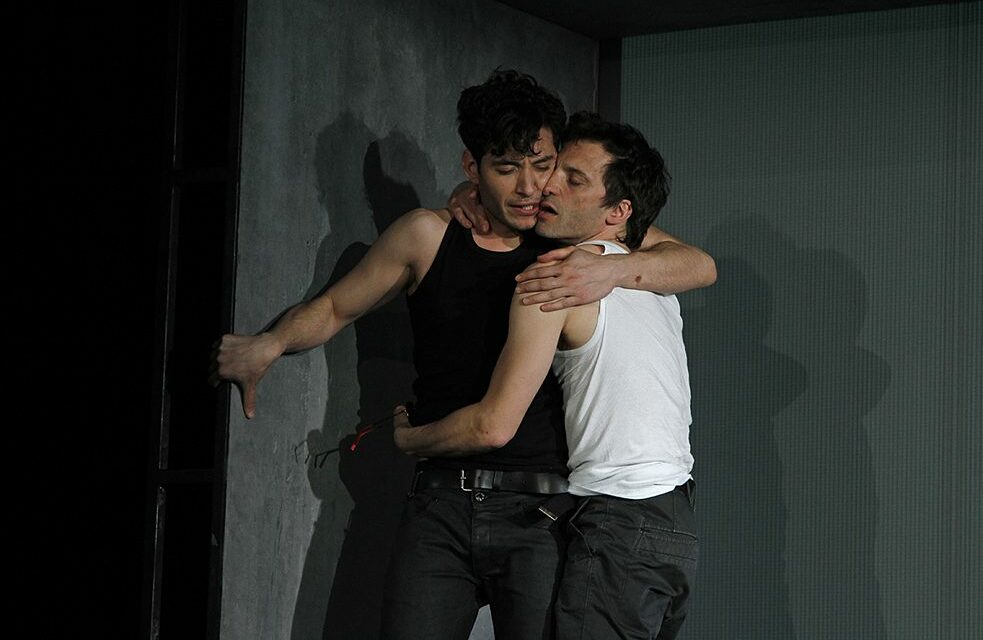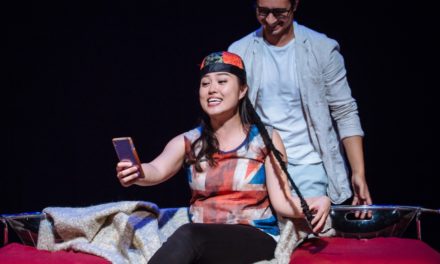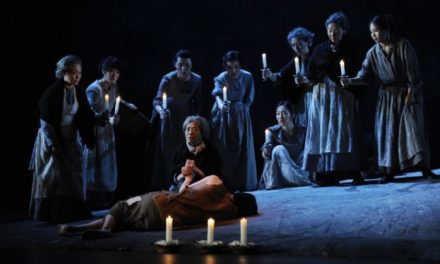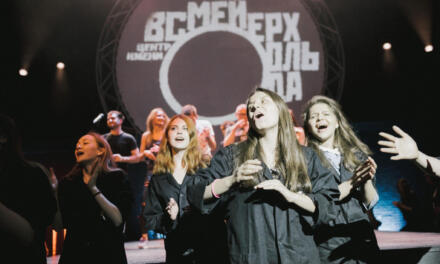When asked about her background, she tends to respond, “I come from the theatre:” playwright and director Sasha Marianna Salzmann stages plays, curates theatre festivals and writes essays. She has also released a very successful debut novel.
“Multi-Faceted Generational Panorama”
Her very first novel was shortlisted for the German Book Prize and won the Jürgen Ponto Foundation Prize for Literature. In Außer sich (Beside Myself, 2017) Sasha Marianna Salzmann, who studied literature, theatre and media along with dramatic writing, deals with questions of identity, migration, family, and belonging. It tells the story of Jewish twins growing up in post-Soviet Moscow and later in a home for refugees in West Germany. Salzmann herself was born to a Jewish family in Soviet Volgograd and came to Germany with her family at the age of ten in 1995.
She began working on her debut novel in 2012 as a writer in residence in Istanbul. The Jürgen Ponto Foundation jury praised her for drawing a “multi-faceted generational panorama from 20th century Soviet Union to contemporary Europe.” The jurors for the Mara Cassens Prize, which Salzmann received in the following year, described the novel’s debut as “deeply provocative.”

“Novels are exercise machines designed to train your patience:” Author Sasha Marianna Salzmann took her time writing her debut novel “Außer sich”. | Photo (detail) ©picture-alliance/Sven Simon/Elmar Kremser
A Theatre of Her Own
The novel raised Salzmann’s profile throughout Germany, where she was already known for her work at Berlin’s Maxim Gorki Theatre where she has been a writer in residence since 2013. From 2013 to 2015, she directed the Studio Я, a studio stage which the newspaper Die Welt described as “Germany’s most exciting experimental stage.” Salzmann values her home stage in particular because it is an opportunity to work with people who respond to situations like the outcome of the most recent Bundestag election with “constructive aggression.” The stage adaptation of Außer sich also premiered here in 2018.
Salzmann’s dramatic works thrill audiences and critics alike: Her play Muttersprache Mameloschn (Mother Tongue Mameloschn) won the Mülheim Audience Award. Theatre magazine Die Deutsche Bühne (The German Stage) has suggested Salzmann may just be the “German-language playwright of the hour” for her “sensitive take on a brutal present” and “biographical vision.”
Disintegration: “I Don’t Play Along, But I Don’t Stay Out Of It”
Together with poet Max Czollek, Salzmann organized a “Disintegration Congress” (2016) and the “Radical Jewish Cultural Days” (2017) at the Maxim Gorki Theatre as well. Both were a chance for international artists to deal with questions of contemporary Jewish identity. “Disintegration means: I don’t play along,” she explained to the Berliner Zeitung. “It doesn’t mean I stay out of it.” She directed The Story of the Life and Death of the New Ben Wew Woopidu Jew by Sivan Ben Yishai as part of the Cultural Days.
Author: Romy König is a freelance journalist who reports on healthcare, business and culture.
Translation: Sarah Smithson-Compton
Copyright: Text: Goethe-Institut, Romy König. This work is licensed under a Creative Commons Attribution – Share Alike 3.0 Germany license.
This article originally appeared in The Goethe-Institut in May 2019 and has been reposted with permission.
This post was written by the author in their personal capacity.The opinions expressed in this article are the author’s own and do not reflect the view of The Theatre Times, their staff or collaborators.
This post was written by Romy König.
The views expressed here belong to the author and do not necessarily reflect our views and opinions.


















